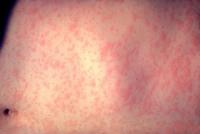-
How climate change impacts the economy
Warmer temperatures, sea level rise and extreme weather will be deleterious to the U.S. economy: Rising temperatures damage property and critical infrastructure, impact human health and productivity, and negatively affect sectors such as agriculture, forestry, fisheries, and tourism. The demand for energy will increase as power generation becomes less reliable, and water supplies will be stressed. Damage to other countries around the globe will also affect U.S. business through disruption in trade and supply chains.
-
-
UN agency launches new vehicle to fund antimicrobial resistance
The Food and Agriculture Organization (FAO) of the United Nations (UN) has launched a new funding vehicle meant to accelerate the response to rising global rates of antimicrobial resistance (AMR). The AMR Multi-Partner Trust Fund was developed through the joint efforts of the Tripartite—the FAO and sister UN agencies the World Organization for Animal Health, and the World Health Organization.
-
-
New technology to measures WMD threat exposures
Researchers are looking to find molecular signatures in blood that identify previous exposures and time of exposure to materials that could be associated with weapons of mass destruction (including infectious agents, chemicals, and radiation). The epigenome is biology’s record keeper, and Epigenetic technology will provide a new tool in the fight against the proliferation of weapons of mass destruction.
-
-
Religion and vaccine refusal are linked. We have to talk about it.
As measles cases have surged across the US and Europe this year, there’s been a lot of talk about what’s causing the outbreaks. Among the most discussed issues: mistrust of the medical establishment, populist politics fueling vaccine doubt, and the spread of misinformation on social media. A comprehensive survey found that people in higher-income countries were among the least confident in vaccine safety — particularly in North America and Europe. Meanwhile, vaccine trust was highest in countries where preventable diseases still spread, such as Bangladesh and Rwanda. So the further people are from outbreaks, and the more distant the memory of diseases like whooping cough and measles, the more likely they are to shun vaccines. Julia Belluz writes in Vox that the survey also uncovered something that unites some of the communities where outbreaks have been spreading lately, and it’s not as easy to talk about: religious belief.
-
-
No exceptions: New York, Washington, Maine abolish religious exemptions for measles vaccine, California looks to limit medical exemptions
The measles outbreaks that have spread through different parts of the country this year are causing lawmakers and advocates in several states to rethink their policies about vaccinations, despite ongoing skepticism and sometimes-fierce political pushback from anti-vaxxers. Laura Fay writes in t74 that New York, Maine and Washington state have all taken steps to restrict vaccine exemptions based on religious beliefs this year, and California is considering a measure to tighten up its existing policy governing medical exemptions.
-
-
A first: Salmonella resistant to antibiotics of last resort found in U.S.
Researchers have found a gene that gives Salmonella resistance to antibiotics of last resort in a sample taken from a human patient in the U.S. The find is the first evidence that the gene mcr-3.1 has made its way into the U.S. from Asia.
-
-
NY State: Religious grounds no longer allowed to exempt children from vaccination
New York is the latest state where parents can no longer refuse to vaccinate children on religious grounds. Both houses of the New York State Assembly passed the measure Thursday and Governor Andrew Cuomo signed it immediately.
-
-
Texas vaccine exemption rates have reached an all-time high. Did Texas make it too easy for parents to opt out?
Texas has resisted recent attempts to change its vaccine laws, allowing parents to get their children exemptions for “reasons of conscience.” Use our lookup tool to see how exemption rates have changed in school districts and private schools across the state.
-
-
As measles cases crack 1,000, a look at what to do
Measles was declared eliminated in the U.S. in 2000, but by early June, the U.S. Centers for Disease Control and Prevention reported 1,022 cases in 28 states, the most since 1992. The disease is occurring in clusters of unvaccinated people who, for religious, personal, or medical reasons, have refused to be vaccinated or to have their children vaccinated. “What we haven’t seen before — or at least it’s much more intense now — is the extent to which a foreign power, Russia, is utilizing the sense of division in our country, using social media, websites targeting low-information communities, isolated communities, to propagate an unhealthy status for Americans, says a national security expert.
-
-
Experts urge vaccination as U.S. measles cases top 1,000
Federal officials yesterday said U.S. measles cases have reached 1,001, the first time since 1992 that cases have been in quadruple figures, while experts continued to urge vaccination and underscored the safety of the vaccine.
-
-
U.S. measles cases top record, putting measles elimination status at risk

The U.S. Centers for Disease Control and Prevention (CDC) said Thursday that 971 cases of measles have been reported this year, topping the 1994 modern-record level, and it warned that the United States could lose its measles elimination status. Amid the growing measles crisis, the conspiracy-fueled anti-vaccination campaign of misinformation continues unabated on social media. DHS mulls a travel ban on measles-infected individuals.
-
-
The U.S. drinking water supply is mostly safe, but that’s not good enough

Most Americans take clean drinking water for granted as a convenience of modern life. The United States has one of the world’s safest drinking water supplies, but new challenges constantly emerge. As a scientist specializing in water quality, I believe water providers and regulators can’t afford to be complacent.
-
-
The “anti-vaxxer” movement and disinformation are fueling the spread of preventable diseases
Outbreaks of vaccine-preventable diseases, including measles, mumps and whooping cough, have again become an issue in Western and developed countries. Developing or conflict-ridden countries have far more cases of malaria and other diseases, but infection rates in the United States and Europe are on the rise. The number of cases is lower than in developing countries, but outbreaks in economically advanced countries can create sudden and sharp disruptions. Stratfor says that one key factor driving these outbreaks is a growing “anti-vaxxer” movement, which has encouraged an increasing number of people to avoid immunizations. Simply put, the more unvaccinated people there are, the more likely disease outbreaks are to occur. Influential political parties and public figures in the United States and Europe have expressed skepticism over the effectiveness and safety of vaccines and the rights of the government to regulate personal health decisions. These ideas have spread through social media and other communications channels, and ill-informed campaigns frequently cite scientific studies that have been soundly debunked. Subversive Russian social media campaigns have also contributed to the growth of the “anti-vaxxer” movement in recent years. The vaccine controversy is one of many divisive issues that the Kremlin has been exploiting to sow dissension in Western countries, particularly during election seasons. A 2018 study published in the American Journal of Public Health found that Russian troll farms had been spreading such disinformation. Numerous politicians and public health officials have pointed out Moscow’s efforts.
-
-
Crowds, social gatherings facilitate disease transmission
Large gatherings — from music festivals to religious pilgrimages to sporting events — have long been known to increase risks of infectious disease outbreaks. Now results from a new study associate even small-scale community gatherings with increased transmission of diarrheal diseases.
-
-
U.S. measles total climbs by 60 to reach 940 cases
The nation’s number of measles cases continues to climb steadily, with 60 more cases reported over the last week, raising this year’s total to 940 cases. Meanwhile, in global measles development, European officials today warned of a high risk of more widespread circulation due to gaps in vaccine coverage.
-
More headlines
The long view
Ransomware Attacks: Death Threats, Endangered Patients and Millions of Dollars in Damages
A ransomware attack on Change Healthcare, a company that processes 15 billion health care transactions annually and deals with 1 in 3 patient records in the United States, is continuing to cause massive disruptions nearly three weeks later. The incident, which started on February 21, has been called the “most significant cyberattack on the U.S. health care system” by the American Hospital Association. It is just the latest example of an increasing trend.
